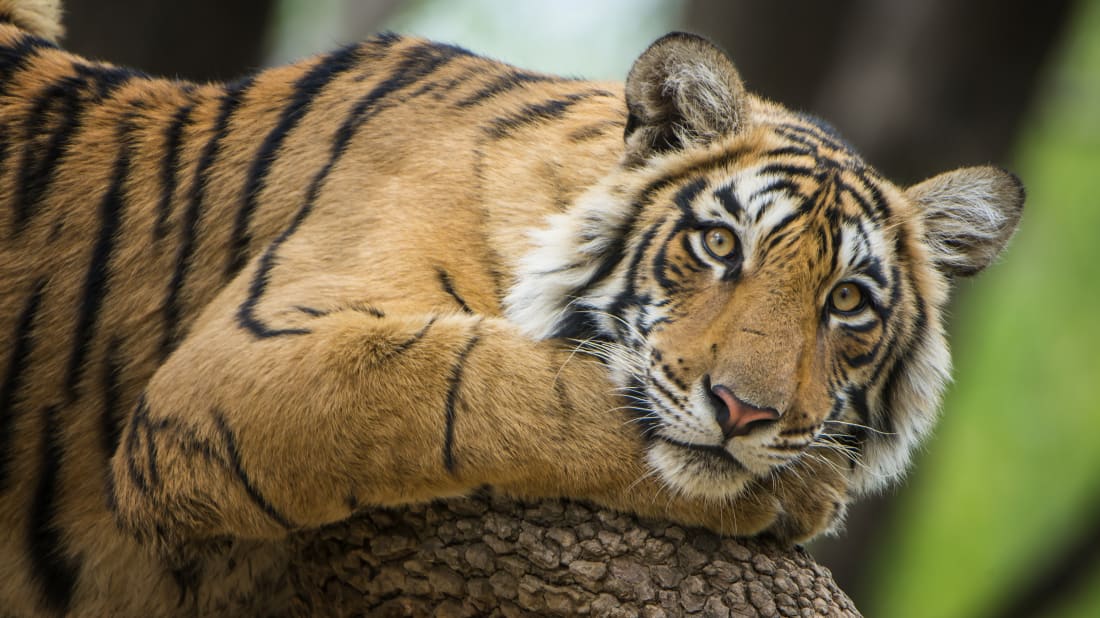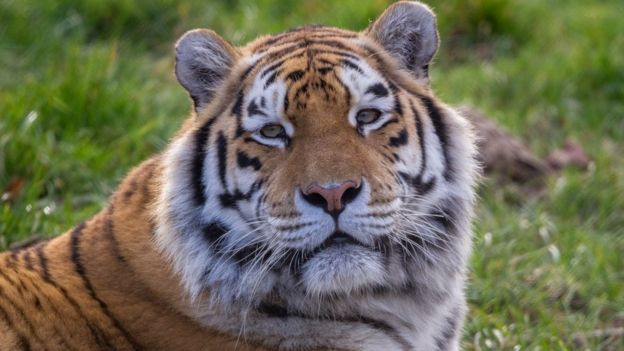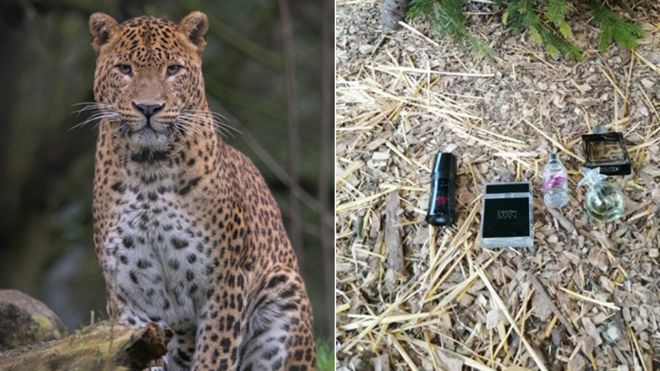Obsession for Men Belongs in a Zoo
"For some reason, Calvin Klein perfume is a huge hit with all big cats, but in all honesty any perfumes work well and we do like to offer them a variety of different smells."
Mike Woolham, animal manager, Banham Zoo, Norfolk, England
"My own personal cat liked it."
"He'd rub against it, more so than with catnip."
Mandy Aftel, perfumer, author of Fragrant: The Secret Life of Scent
"We spray it around the enclosure in lots of little concentrated sprays, and when the cats come out and smell it, they literally roll onto the ground, rub their cheeks all over it, and rub their faces with it."
"I guess it's kind of like the reaction that you get from a cat when it's enjoying catnip. They just seem to be in absolute heaven."
Louise Ginman, Taronga Zoo, Sydney, Australia
 |
| iStock.com/guenterguni |
The Banham Zoo recently produced a short video showing leopards taking turns at pawing a tree, and a tiger rubbing its face against a log, emphasizing that large predatory animals "respond very positively" to scents that people are accustomed to using, never suspecting that it is not only humans that appreciate the fragrances that are reputed to appeal to members of the opposite sex when worn enticingly by women and increasingly, by men.
For the big cats, at least, it is the presence of an ingredient called civetone that represents the appealing element in these fragrances. A small catlike mammal that lives throughout Southeast Asia and Africa, the civet like most mammals, marks its territory when it secretes a distinctive scent emanating from its anal glands. Pheromones like these have long been used as a vital ingredient in the making of perfumes. Today's perfume industry makes use of a laboratory-produced copy, civetone.
 |
| Getty Images |
Amusingly enough, the fragrance is described by Ms.Aftel, an expert in perfumery, as a fecal floral: "kind of poopy, but kind of floral", creating a complex aroma with musky tones when used in the manufacture of perfume. Who would've guessed? Ms.Aftel theorizes that the use of secretions of a wild animal in the sale of luxury perfumes might have originated when civet and other aromatic materials such as musk were historically used in medicines.
When civet oil was being harvested naturally, the animals were maintained in a captive state until the turn of the 19th Century, when perfumers understood they could use a synthetic formulation in place of natural civet essence. There is surely a correlation here with the propensity of domestic animals like dogs to find the scent of other animals' fecal droppings irresistible, rolling in it ecstatically.
Animal behaviourists believed that instinct drives dogs and other animals to this behaviour to make themselves smell repugnantly as a repellant defense against predators.
 |
| Banham Zoo |
That Bronx zookeeper, Pat Thomas, and his findings had his impression confirmed when zookeepers the world over treated their big cats to that singular scent to observe the animals' delight over Obsession for Men's fragrance. Wildlife biologists soon began stocking up on the cologne after experimenting with it, to discover elusive species such as jaguars would approach their trail cameras in the presence of the irresistible fragrance.
 |
| Purr-fume lovers: Banham Zoo's big cats "respond very positively to unique scents", keepers say. Banham Zoo |
Labels: Research, Wild Animals, Zoos

0 Comments:
Post a Comment
<< Home